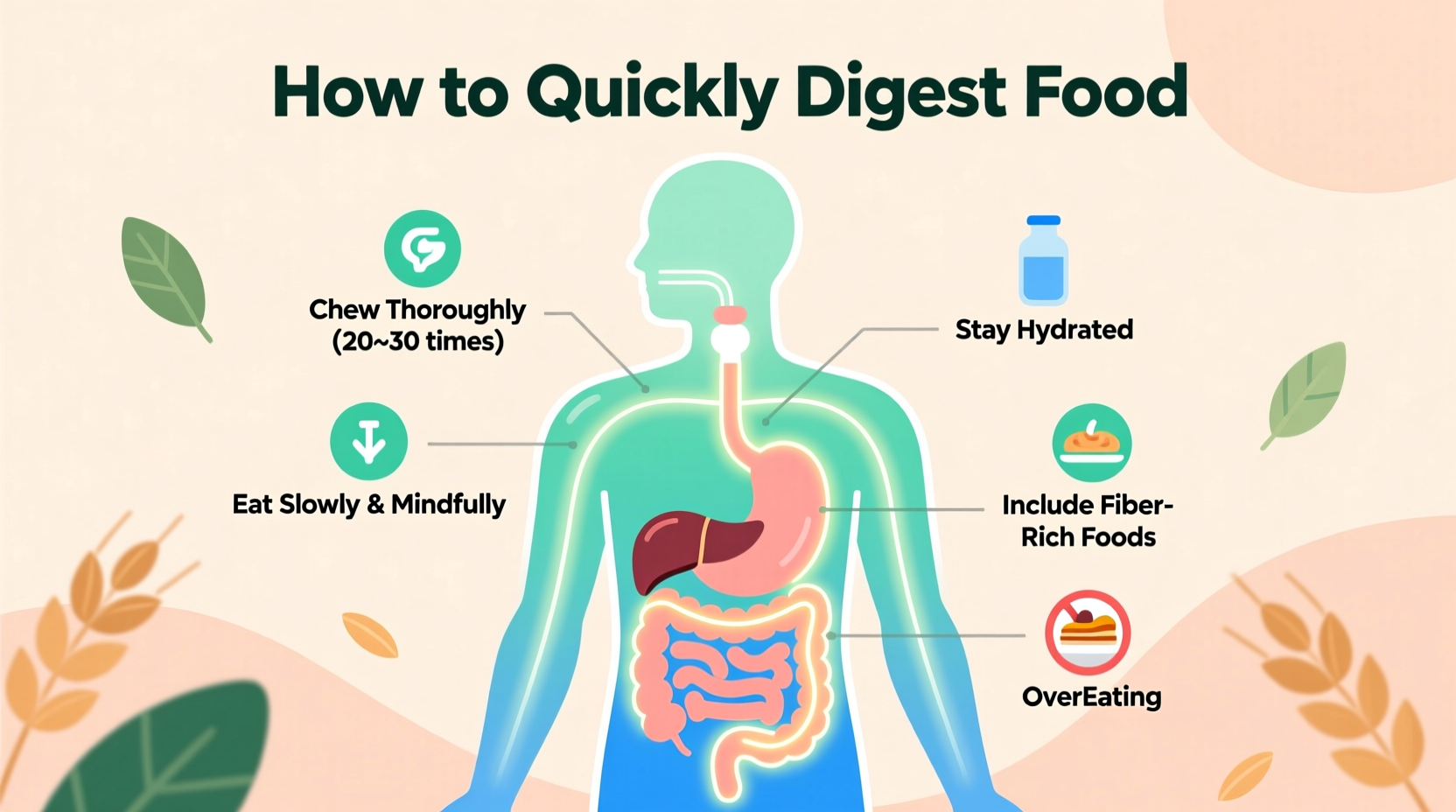Struggling with bloating or discomfort after meals? You're not alone. Millions seek ways to improve digestion naturally without resorting to medications. While no method provides instant results, certain evidence-based techniques can support your body's natural digestive process within 30-60 minutes. This guide separates fact from fiction using recommendations from gastroenterologists and nutrition science.
Immediate Actions for Better Digestion (First 60 Minutes)
What you do right after eating significantly impacts digestion speed. These practical steps work with your body's physiology rather than against it:
Take a Gentle 15-Minute Walk
Research from the National Institute of Diabetes and Digestive and Kidney Diseases shows that light physical activity stimulates peristalsis—the wave-like muscle contractions that move food through your digestive tract. A post-meal walk increases blood flow to your digestive organs without diverting energy to intense exercise.
Sip Warm Water or Herbal Tea
Warm liquids help dissolve fats and stimulate digestive enzymes. A 2022 study in the Journal of Gastroenterology found that ginger tea significantly reduced gastric emptying time compared to plain water. Peppermint tea also relaxes gastrointestinal muscles, easing discomfort.

Avoid Common Digestion Disruptors
Certain post-meal habits actually slow digestion:
- Don't lie down immediately—gravity helps keep stomach contents moving forward
- Limit cold beverages—they can constrict digestive muscles
- Avoid carbonated drinks—they introduce gas that causes bloating
| Effective Digestion Methods | Ineffective "Hacks" |
|---|---|
| Gentle walking (15-20 min) | "Digestive" supplements with no clinical evidence |
| Ginger or peppermint tea | Over-the-counter enzymes without medical need |
| Mindful eating (chewing thoroughly) | Excessive water during meals (dilutes stomach acid) |
| Probiotic-rich foods (yogurt, kefir) | "Detox" teas with laxative effects |
Pre-Meal Strategies for Faster Digestion
What happens before you eat sets the stage for efficient digestion:
Practice Mindful Eating Techniques
Chewing food thoroughly (20-30 times per bite) begins mechanical digestion in your mouth. The Mayo Clinic emphasizes that proper chewing reduces the workload on your stomach and small intestine. Put your fork down between bites to slow your eating pace—this gives your brain time to register fullness signals.
Incorporate Digestive Spices
Antonio Rodriguez, culinary expert with expertise in food chemistry, explains: "Certain spices contain compounds that stimulate digestive enzyme production. Turmeric's curcumin increases bile production, while fennel seeds contain anethole which relaxes intestinal muscles." Add these to your cooking:
- Ginger (fresh or powdered)
- Fennel seeds
- Cumin
- Peppermint
When Digestion Methods Won't Help (Context Boundaries)
Some situations require medical attention rather than home remedies:
- Severe abdominal pain—could indicate gallstones or appendicitis
- Persistent vomiting—may signal intestinal obstruction
- Blood in stool—requires immediate evaluation
- Symptoms lasting over 48 hours
The NIDDK recommends consulting a doctor if digestive discomfort occurs more than twice weekly or significantly impacts daily life.
Digestion Myths That Actually Slow You Down
Avoid these common misconceptions that could worsen your symptoms:
- "Digestive enzymes" supplements—unless prescribed for specific conditions like pancreatic insufficiency, they provide no benefit for healthy individuals
- Excessive water during meals—dilutes stomach acid needed for protein breakdown
- "Detox" teas with senna—create dependency and disrupt natural bowel function
Long-Term Digestive Health Habits
For consistently better digestion, incorporate these evidence-based practices:
- Maintain regular meal times to regulate digestive rhythms
- Include 25-30g daily fiber from whole foods (not supplements)
- Stay hydrated throughout the day (not just during meals)
- Manage stress through breathing exercises—cortisol directly impacts gut motility











 浙公网安备
33010002000092号
浙公网安备
33010002000092号 浙B2-20120091-4
浙B2-20120091-4